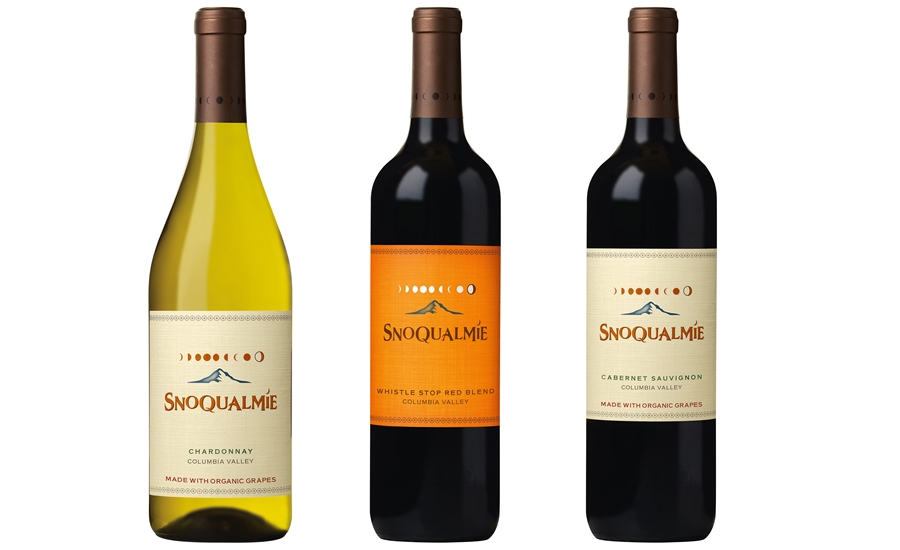Snoqualmie Winery has partnered with Rivercap (rivercap.com) to add more green to their wine lines. The capsule company, located in Benicia, CA, and the winery in Paterson, WA, have joined forces to produce a sustainable wine package with the release of Absolute Green Line (AGL) eco-designed wine capsules.
Increasingly, consumers demand sustainably produced products, and winemakers are eager to extend their environmentally responsible farming and winemaking methods to wine packaging. Rivercap AGL is an ecological alternative—a capsule fashioned with bio-based polyethylene (PE) produced with sugar cane and water-based inks, instead of oil and solvents. Sugar cane is a renewable resource, and like all plants, it absorbs green-house gases during cultivation. This, together with the move from solvent-based inks to water-based inks, means that the Rivercap AGL capsule reduces its emission of CO2 by 80%.
The first Snoqualmie wines to feature the new capsule are the 2014 red wines and 2015 white wines. Snoqualmie winemaker Joy Andersen says, “I’m delighted that Rivercap’s Absolute Green Line capsule is now a part of the Snoqualmie wine package. The AGL capsule provides a wonderful opportunity to strengthen the winery’s commitment to fostering a sustainable environment.”
The new eco-friendly capsules were part of a natural progression in Snoqualmie’s investment and commitment to fostering a sustainable environment. In addition to the capsules, the winery’s packaging now includes the following eco-friendly elements:
- Glass bottles that are among the lightest in the industry (397g) and result in a 13% reduction in carbon emissions.
- Labels and other printed materials that are on 100% post-consumer waste materials stock.
- Corks and labels that are certified by the Forest Stewardship Council, guaranteeing sustainable practices at the source of origin.
- Corks that are also certified by the Rainforest Alliance, an international group committed to conserving biodiversity through sustainability.
- Grapes that are certified organic by the Washington State Department of Agriculture (ECO tier).

